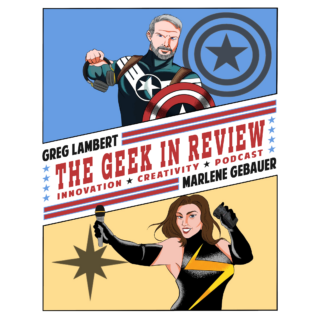This week we sit down with Suzanne Konstance, Vice-President and General Manager for Legal and Regulatory US at Wolters Kluwer. She outlines how the company supports professionals in highly regulated fields with software and authoritative content. Operations span multiple countries with a deliberately local approach, where teams design solutions for each market. Listeners get a clear view of scope, from enterprise legal management to recent additions such as Brightflag, alongside deep subject expertise.
Konstance explains a core focus on regulatory compliance across securities, tax, IP, and employment. The aim is simple, help clients stay out of court. Continuous change drives editorial work, with authors and editors tracking shifts, executive orders, and practical effects. Provenance, version history, and context matter, supported by structured meta tagging which helps search and AI retrieve the right source every time.
In a segment on trust, the conversation moves to standards for accuracy and auditability. Clients tell Wolters Kluwer quality outranks speed for research, so the team emphasizes authoritative sources and transparent sourcing. Konstance walks through a recent non-exclusive content license with Harvey for primary law from US and German collections, part of a broader collaboration strategy which also includes VitalLaw AI and new cross-border features. The goal is a reliable workflow where answers cite sources, show currency, and fit real practice.
Real user labs reinforce these priorities. At AALL, librarians worked hands-on in a sandbox session with no guided prompts, pushing tools to limits and asking tough questions. One theme dominated, transparency, with live citations and source trails visible during use. Editors remain in the loop to curate likely questions, collect feedback, and refine outputs, while openness about progress helps teams separate market sizzle from dependable results.
Looking ahead, Konstance expects roles to shift toward managing agents and setting clear instructions, similar to supervising a room full of interns, with strong expertise still required for oversight. Teams will need to train newcomers on fundamentals, auditing, and controls, so technology serves professionals, not the reverse. She also shares sources she follows, industry conversations with customers, conferences, LinkedIn, X, plus guidance from a long-standing internal Center of Excellence for AI. For more on Wolters Kluwer initiatives, listeners can visit wolterskluwer.com and explore the Legal and Regulatory section along with the AI hub.
Also, check out Jerry David DeCicca and his new album, Cardiac Country.
Links:
- Wolters Kluwer Legal & Regulatory U.S. page
- Wolters Kluwer’s AI center
- The press release announcing the content licensing agreement with Harvey
- VitalLaw
Listen on mobile platforms: Apple Podcasts | Spotify | YouTube
[Special Thanks to Legal Technology Hub for their sponsoring this episode.]
Blue Sky: @geeklawblog.com @marlgeb
Email: geekinreviewpodcast@gmail.com
Music: Jerry David DeCicca










 With the influx of Venture Capital and overall interests in Contract Lifecycle Management (CLM), the rest of the legal industry is finally figuring out what
With the influx of Venture Capital and overall interests in Contract Lifecycle Management (CLM), the rest of the legal industry is finally figuring out what 